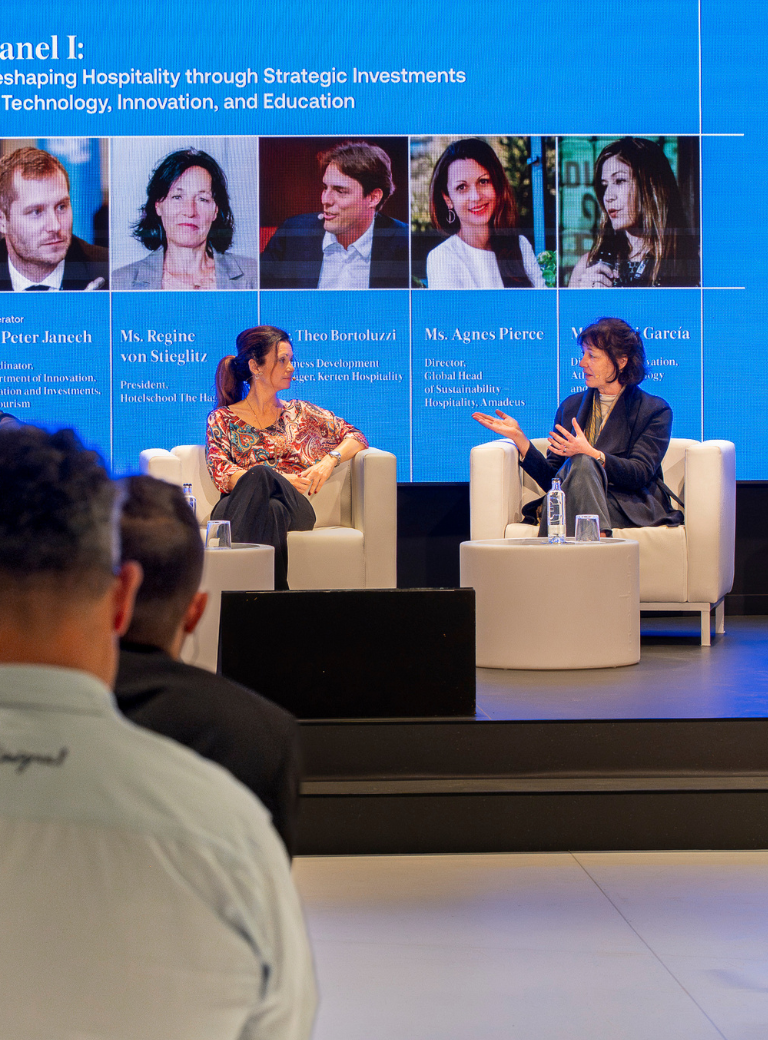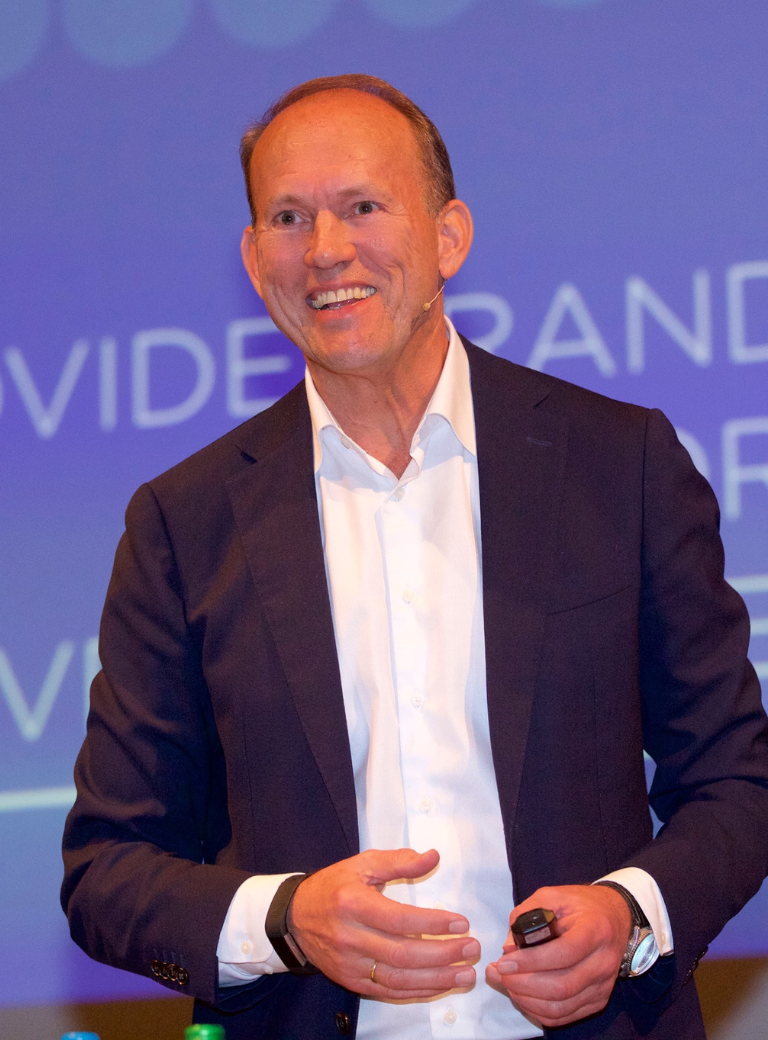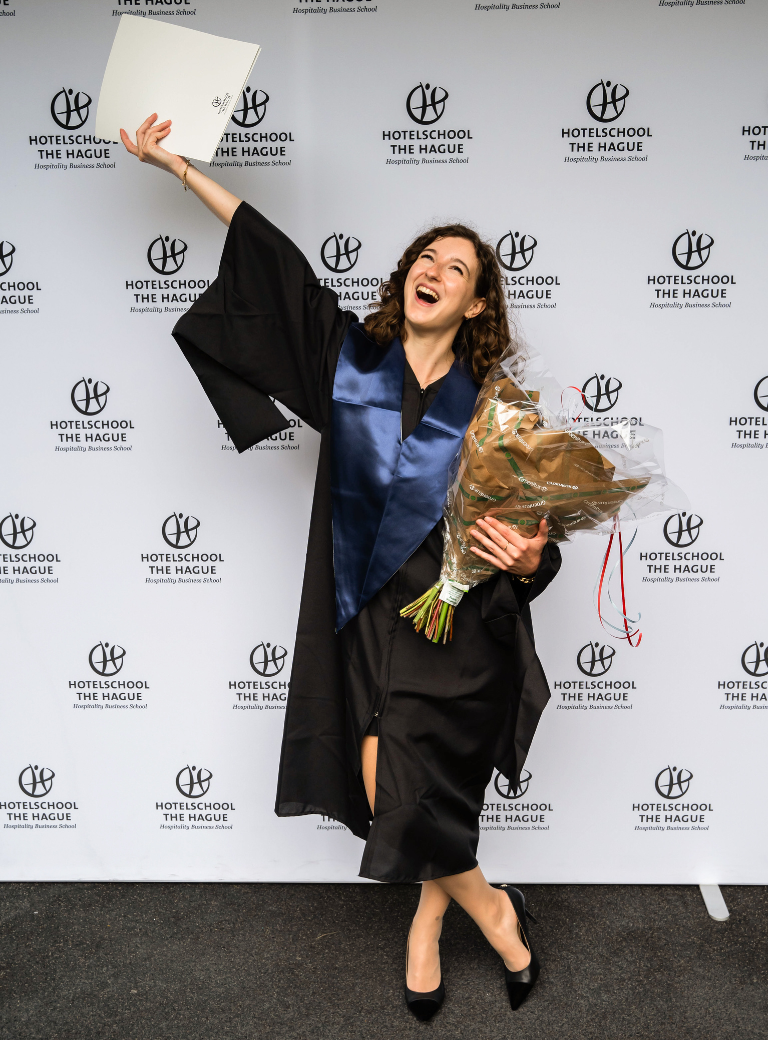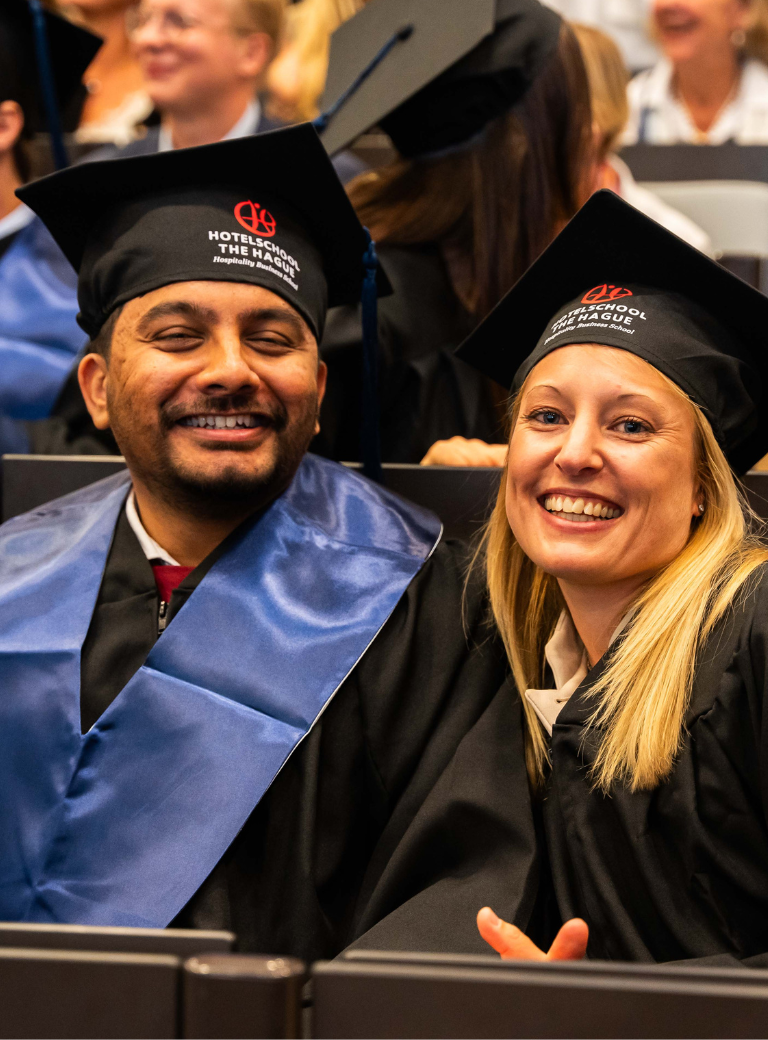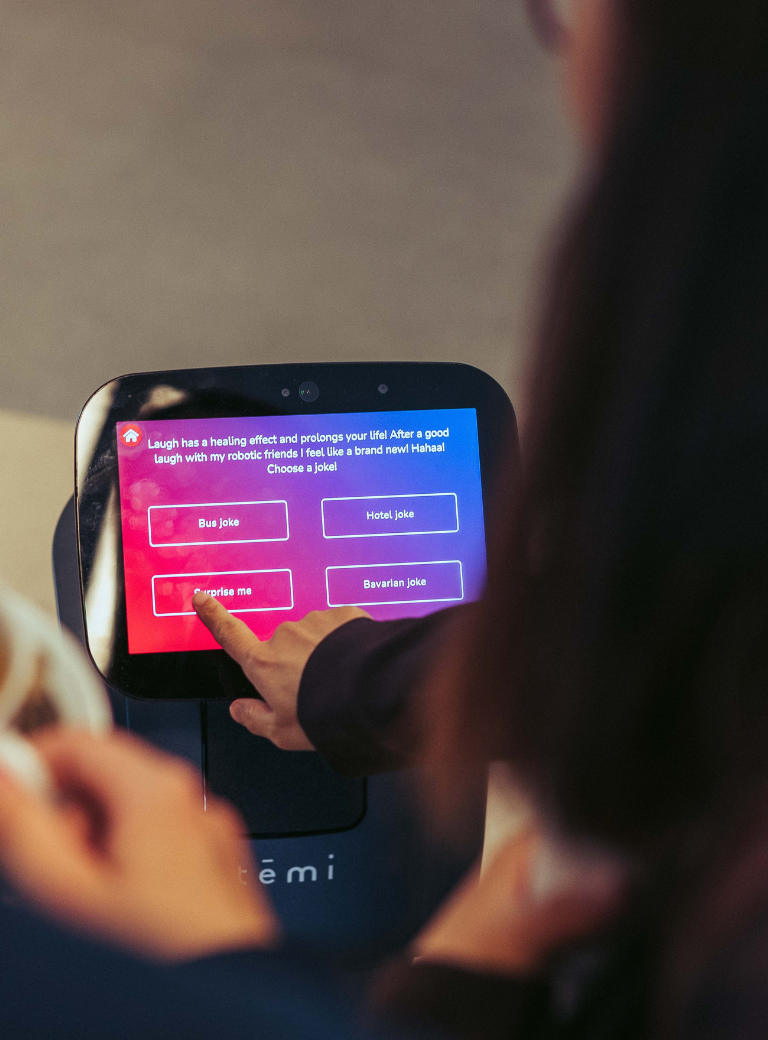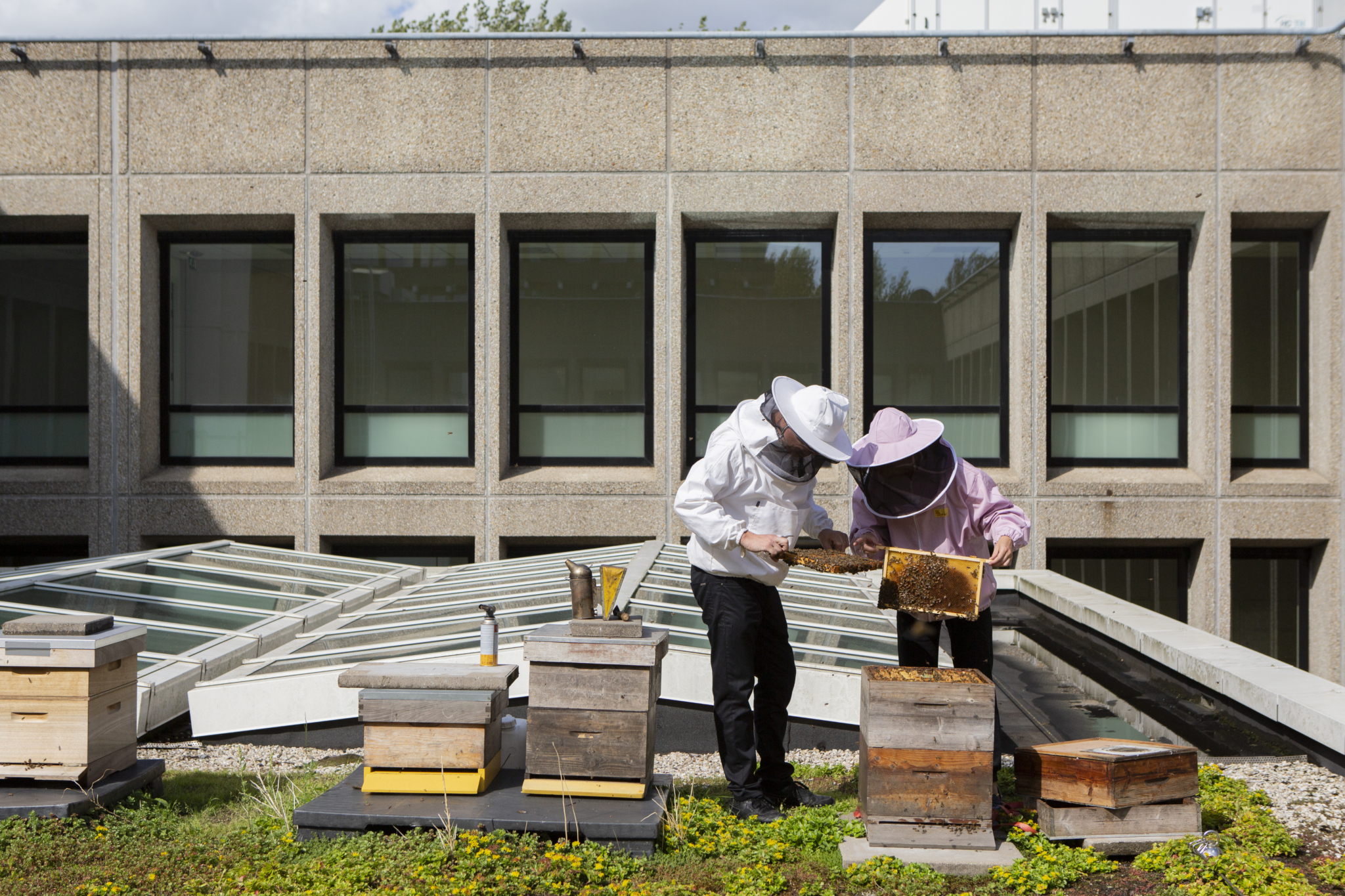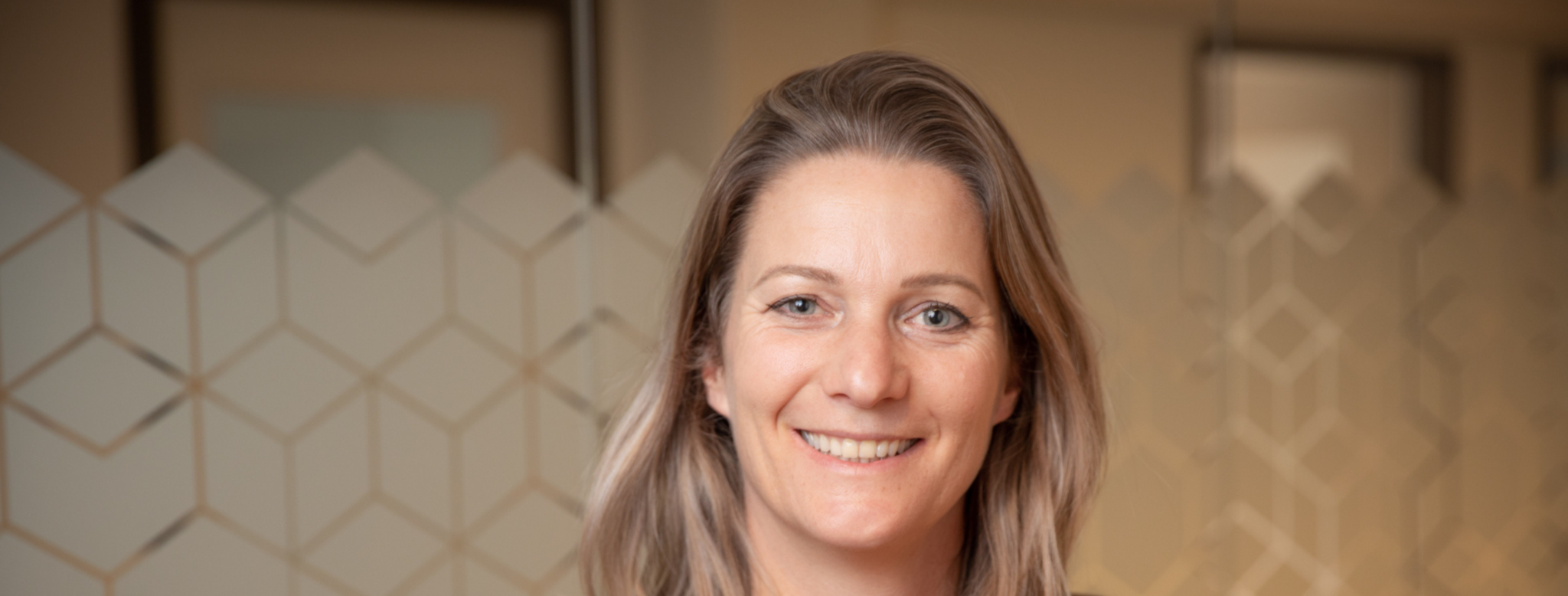
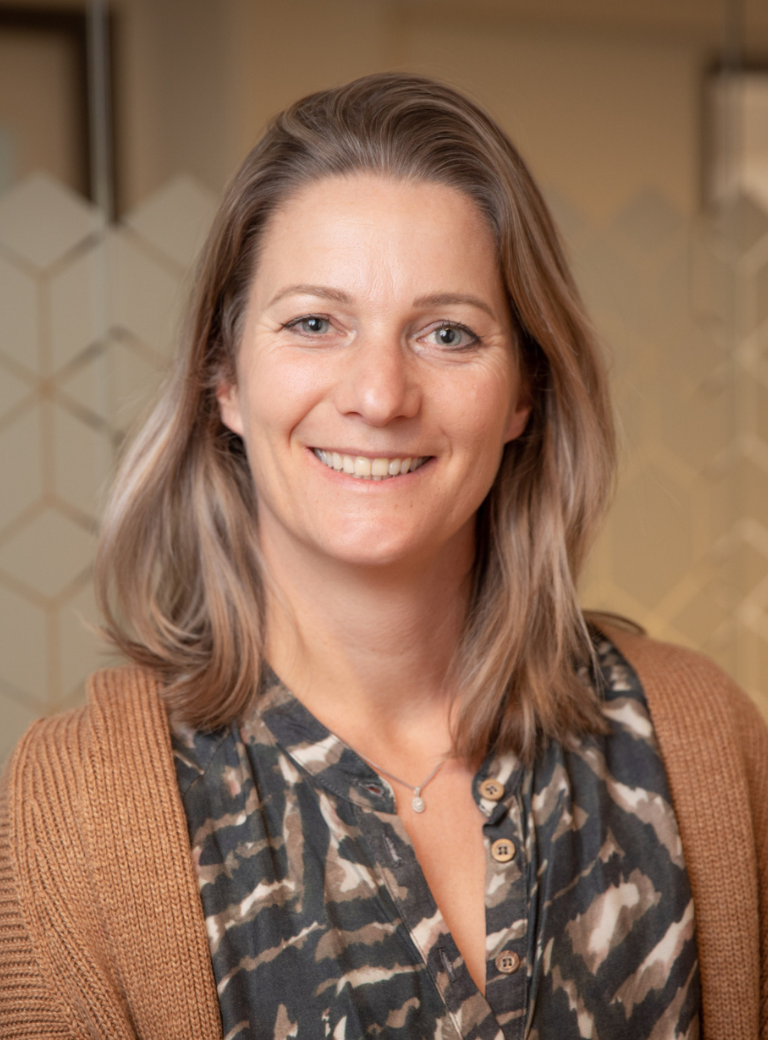
Navigating the robotic revolution in the hospitality industry: Meet Ms Dekker, Professor of Hospitality and Hospitable behaviour at HTH
With interests in Hospitality, Tourism, Guest Experience, Education, and Curriculum Development, Ms Daphne Dekker is a distinguished member of Hotelschool The Hague’s Research Centre.
1. Tell us a little bit about your educational and professional background.
I studied Organisational and Social Psychology at the University of Utrecht and afterwards, I joined the Eindhoven University of Technology. There I did my PhD in Human Performance Management and my research revolved around virtual teams, not so much about the technological communication systems they use, but about the underlying psychological processes and behaviours. How can they be more effective? How does trust develop if people do not see each other? What team behaviours are related to positive outcomes, such as satisfaction? It was about the “human” part of working together in the virtual environment. I completed my PhD in 2008, and back then virtual teams were quite a new subject to work on. Big multinationals, such as Phillips, Shell, and Hewlett-Packard were already working virtually, but after COVID-19, the working conditions changed, and working remotely became the new norm. Therefore, suddenly, my studies became very relevant again and currently many people are referencing my work.
After finishing my PhD and before joining Hotelschool The Hague (HTH) as a Professor of Applied Sciences (Lector) in 2011, I worked at the Radboud University. From 2011 till 2017 I worked at HTH as a Professor. From 2017 till 2023 I worked remotely from Spain as a lecturer and now recently, joined HTH as a professor again. Besides HTH, I am affiliated with the Organizational Psychology group at the Vrije University (VU) in Amsterdam. At HTH, I focus on people in a professional environment, on the interactions and behaviours between host and guest, and the underlying psychological processes. Some of the questions that we try to answer focus on what guests perceive as hospitable. But also, on fundamental questions such as what hospitable behaviour is.
Currently, at HTH’s Research Centre, we focus on digital developments such as robotics. More and more companies in the hospitality industry are adopting robots. An important question that we focus on is, how does the implementation of robots impact the relation between the host and the guest? Additionally, how do people feel if suddenly robots approach them at reception? Do they enjoy it or feel uncomfortable? Further, what can and cannot be done from an employee perspective? Do employees feel at ease because robots can take over repetitive ‘boring’ tasks? Or do they feel threatened by them? All in all, these are a few of the questions my colleagues and I are exploring within the Research Centre.
"An important question that we focus on is, how does the implementation of robots impact the relation between the host and the guest?"
Daphne Dekker
2. From Psychology you transitioned into Hospitality Education. What originally sparked your passion for the industry?
Psychology is about people and psychological knowledge can be applied to any environment or industry where people come together. My focus has always been on the work environment, of which the hospitality industry is a very exciting example.
My life has never been within the borders of The Netherlands. I have lived abroad in various countries, including Spain, the United States and Canada. Hence, I have always been part of this international, traveling community. Moreover, hospitality is a dynamic industry that strives to improve traveling, provide opportunities, and respond to challenges. We may be witnessing the appearance of robotics now, but the industry is always developing. Hospitality is an industry always ‘on the move’, progressing daily. It is very interesting to look at this from a psychological perspective. This way we can improve the experiences of guests but also of employees.
Of course, there are exceptions. Some very traditional hotels keep things the way they are. This is also interesting to observe and delve into the reasoning behind it. Overall, hospitality is an interesting field to apply psychological knowledge on. When it comes to Hospitality Education, knowing that HTH has a vibrant community of international students and employees makes it a very attractive environment to work in!
3. What kind of questions will you be researching as a Professor of Hospitality and Hospitable Behaviour at Hotelschool The Hague?
My main focus will be on introducing robotics in the hospitality industry and its psychological impact on the way hotels and restaurants are operated. Another project I am undertaking is getting to know how much the hospitality industry has adapted to technological innovations and AI. This is a greatly dynamic environment, and we need to best prepare our students with the right knowledge and skills to keep up with and excel in a world that is changing constantly.
4. Will you also be involved in the development of courses at HTH?
In general, Hotelschool The Hague seeks to integrate research and education. This means that all researchers are involved in education, and that lecturers will get more opportunities to do research. In my case, I am heavily involved in the new Professional Doctorate, the research programme aimed at professionals who have already completed a master’s degree. Also, I am involved in the MBA programme and Launch Your Career (LYCar). For the MBA, I have developed the ‘Hospitality in Perspective’ and in this course, I challenge students to explore fundamental questions like ‘What is Hospitality?’ For LYCar, which is in the last phase of the Bachelor programme where students launch their research on their final thesis, I am doing research with students on the topic of AI. In all my educational activities, I try to integrate knowledge that we have gained at the Research Centre.
5. Having worked at Radboud, and currently working at VU and HTH, what is your impression of our school?
They are all quite different environments. The first two are exclusively academic whereas Hotelschool The Hague is both academic and practical with strong ties to the industry. VU is a very theory-driven university with high-quality research. Amongst other things, I supervise theses of VU Master students, and I can confidently say that their work is of great academic and analytical level.
Compared to HTH, the difference is that here the students ‘have their feet on the ground’. Everything being taught is relevant and up-to-date, and research findings get implemented instantly. What is remarkably interesting about HTH is how tight the connection with the hospitality industry is; there is a direct link between what we do, what the students do, and the industry. HTH students are very enthusiastic, willing to experiment, and knowledgeable about hospitality. They know what is going on in real life since HTH is constantly bridging the gap between academic knowledge and the industry. At HTH we involve our strategic, industry partners in our educational activities to offer our students the best possible preparation for their future career, which I fully embrace.
"HTH students are very enthusiastic, willing to experiment, and knowledgeable about hospitality."
Daphne Dekker
6. What kind of research have you done in the past months with our students?
Amongst other studies, we have recently done some experimental studies at the front office at our school. We looked at the effect of the “personality” of the robot on the guest experience. In some cases, the robot behaved in an extraverted manner (talkative, social and enthusiastic) while in other cases the robot was programmed to behave in a more introverted way. We expected to find that extraverted robots had a stronger , more positive impact on the experience of the guests. However, we did not find that. We did find an interesting interaction though as we measured the level of extraversion of the guests; we found that guests preferred to be served by a robot that is like them. Meaning that extraverted individuals are more satisfied after being served by an extraverted robot, and introverted individuals feel more satisfaction after interacting with an introverted robot.
Another recent study was conducted at the Sea Palace. There, we compared the service on two identical floors with the only difference being that there was a robot present in one of the two floors. People, without knowing this detail, made reservations at the restaurant. The robot did not have a front office function or an interactive role but was only assisting the staff. What we found is that guests from the floor where the robot was present were more satisfied. Now, we are trying to figure out why that was the case. What are the underlying processes? One explanation could be that, since robots are around to take tasks off the employees’ hands, there is more time for host-guest interaction contributing to guest delight. We know, from previous research, that this interaction is strongly related to guest delight.
Finally, an interesting finding that we want to work on further is that people may get afraid or even feel disgusted by a robot resembling a human too much. This is known as the Uncanny Valley effect; in essence, it is the hypothesis that an entity appearing almost human may provoke eerie feelings in humans. For researching this, and many other aspects of robotics in hospitality, it is important to work together with esteemed technological institutes. To incorporate robotic knowledge in our research, HTH’s Research Centre has joined hands with the Delft University of Technology and Robohouse, two institutions with extensive knowledge on robotics. Via this collaboration, we can make first steps towards integrating the fields of hospitality and robotics. In particular, TU Delft has the expertise and ability to build things, but psychological input and knowledge are needed to develop robots that will also work in the hospitality industry. What is it that people need and want? From a guest experience and hospitality perspective, what is it that can be put into a robot? There are so many different viewpoints, and we are very curious to see how all these can progress.
7. You recently joined Hotel Summit, the annual conference for senior hotel management, as a keynote speaker. Can you tell us more about it?
I was very pleased to attend the conference and discuss robotics. In particular, I explained the current state of robotics, shared various examples, and discussed what is and is not feasible. Furthermore, I presented the innovative research we are currently conducting at HTH regarding hotel robots, which includes assessing the impact of existing service robots and the development of new robot designs aimed at transforming the hotel sector. In the research, we questioned whether there were different reactions from guests when the robot was male or female. Of course, guests differ from each other, so we avoid generalisations and keep personalised service in mind. Hospitality is all about delighting the guest and focusing on the individual. And this is exactly the reason we talk about robotics in hospitality; it is not about offering a generalised experience, but a customised one.
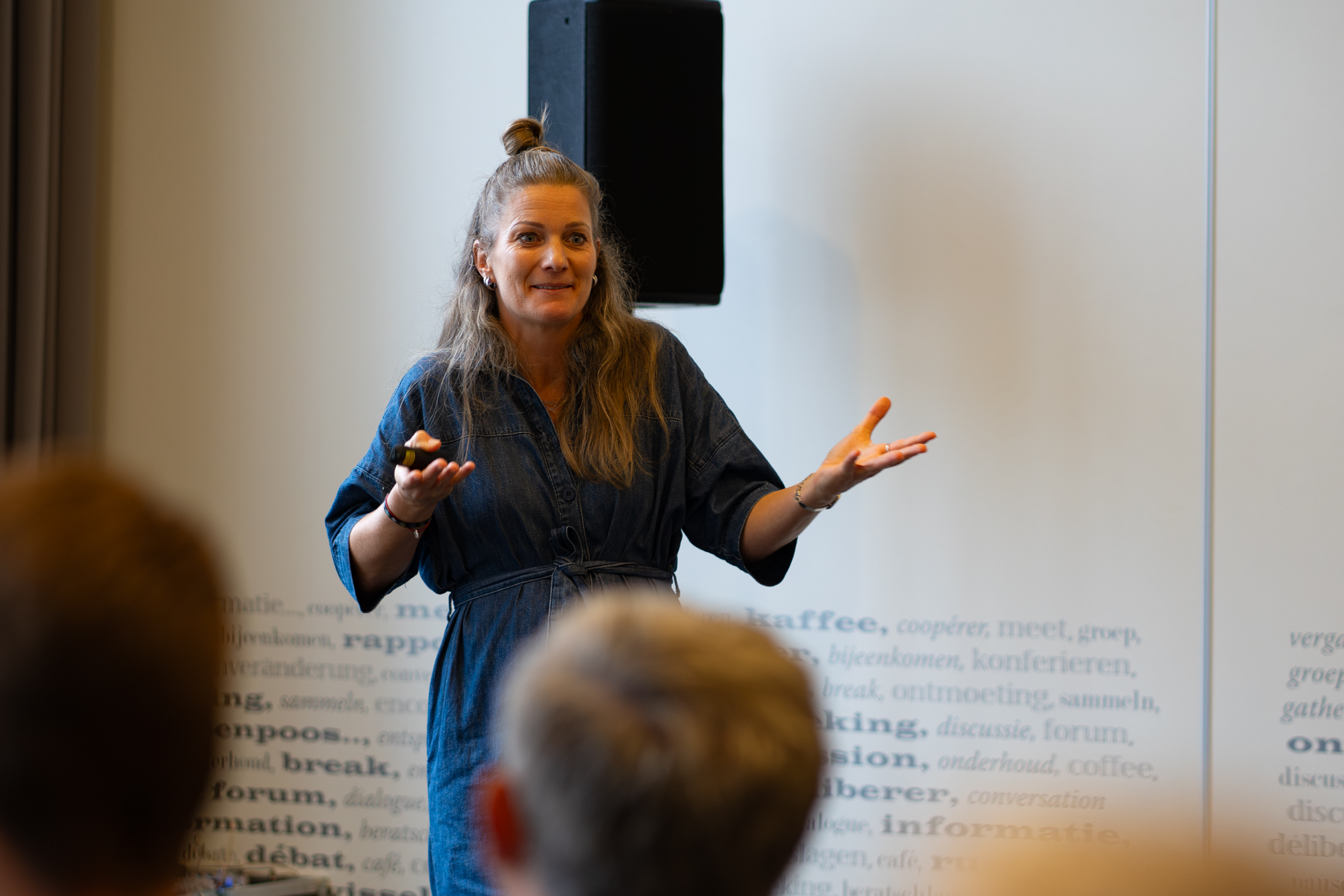
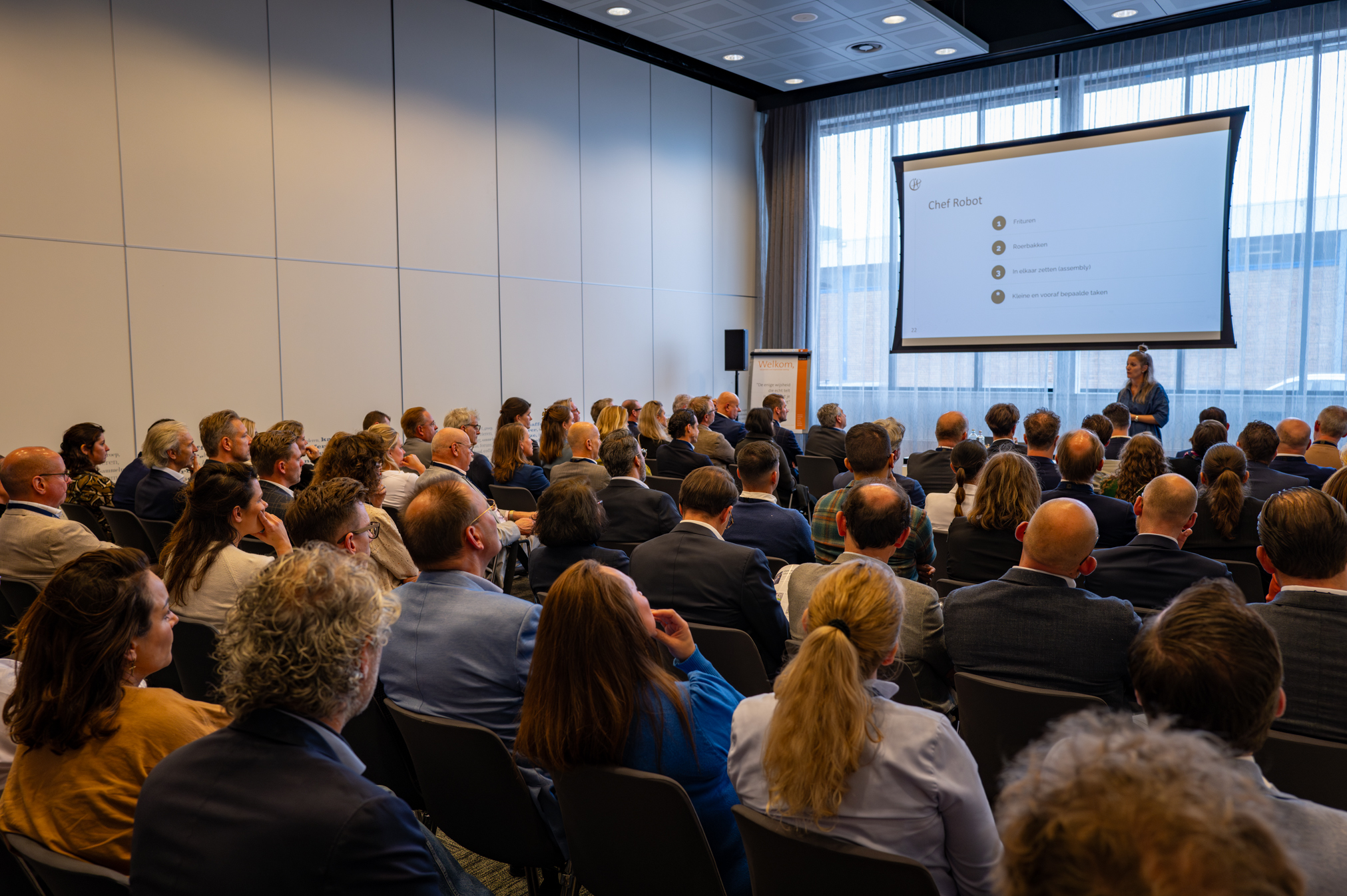
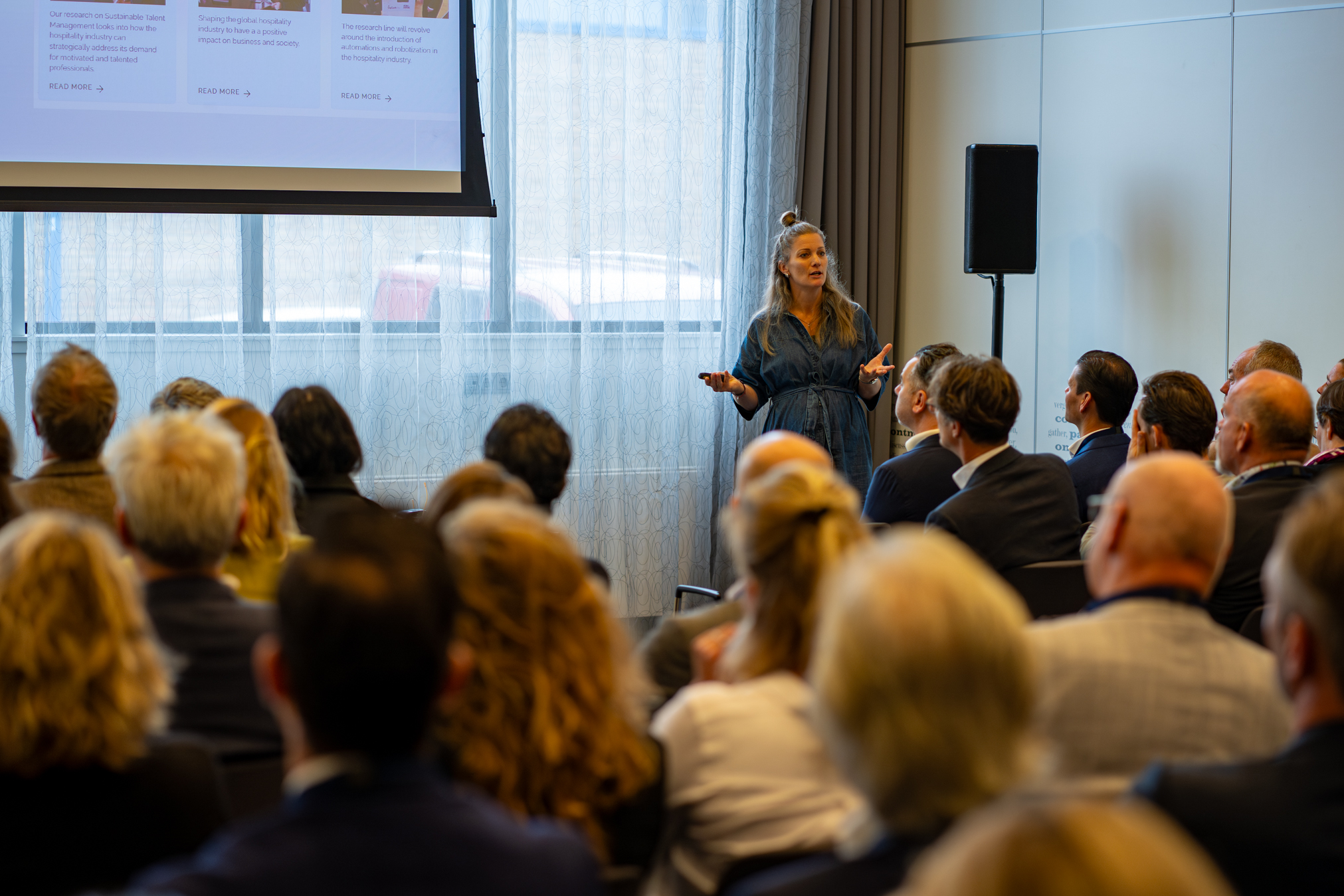
8. Complete the sentence: My goal is to…
My goal is to conduct practically relevant research, together with colleagues, students, and the industry. I want to do this in an academic and in-depth way. Our findings can help the industry to improve its guest and employee experience. Of course, gaining all this knowledge will also improve the quality of education of our students, which is another important goal I am pursuing.
About Research Center at Hotelschool The Hague
If you are looking for information or you are an industry partner interested in collaborating with HTH on these research projects, please contact Daphne Dekker Research[@]hotelschool.nl.
